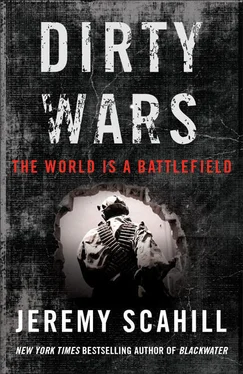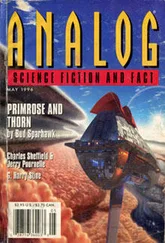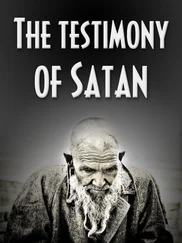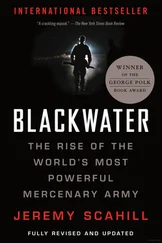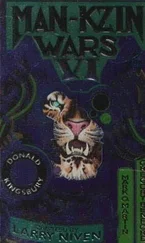McChrystal watched from the sidelines as the invasion of Iraq got under way. Before “Shock and Awe” began, an elite group of JSOC commandos, known as Task Force 20, deployed inside Iraq ahead of the larger invading force. Its mission was threefold: help invading forces develop targets for air strikes, uncover SCUD missiles and other weapons of mass destruction, and hunt down HVTs such as Saddam Hussein. The “super secret” Task Force 20 “had been operating in the Kurdish autonomous region of northern Iraq for more than a decade, and in 2002 its forces infiltrated Iraq proper,” William Arkin reported in the Los Angeles Times in June 2003. “Commandos established ‘hide sites’ and listening posts, and they placed acoustic and seismic sensors on Iraqi roads to track activity. They penetrated Iraq’s fiber-optic network to eavesdrop on communications.” The task force, which numbered roughly one thousand personnel, included top-tier teams, each with a dozen commandos that would have free rein to travel throughout Iraq in pursuit of Saddam Hussein and the Baath Party leadership and military command structure.
Although TF-20 was given autonomy on the battlefield and coordinated its operations directly with Pentagon officials, at times its men attached themselves to conventional military units. “In 2003, JSOC soldiers were among the first troops in southern Iraq, riding in with the protection of an armored task force of the 3rd Infantry Division,” Arkin and Dana Priest reported in their book, Top Secret America. “According to three JSOC commanders, these troops helped the division kill upward of five thousand Iraqis in perhaps the bloodiest portion of the war, the march to Baghdad. ‘It sounded like World War II, there was so much noise,’ said a JSOC commander who was there. The gunners on the armored vehicles faced human waves of Iraqi army forces, fedayeen, and their ragtag civilian supporters. They were ordered to kill anyone who got up on the vehicles. ‘That’s the dirty little secret, the dark underbelly of the war,’ he said. ‘There were bodies everywhere.’” Armored “vehicles also delivered the JSOC commandos on their own missions to capture or kill senior Iraqi Baathists loyal to Saddam Hussein and to find and secure weapons of mass destruction.” They would never find any to secure.
McChrystal had returned from Afghanistan just as the Iraq War planning was kicking into full gear. His new position was as vice director of operations for the Joint Staff (J-2). Like many military and intelligence officials, he did not view Iraq as a terrorist threat and was not enthusiastic about the invasion. “There were a lot of us who didn’t think Iraq was a good idea,” McChrystal told journalist Michael Hastings. “We co-opted the media in the buildup to the Iraq War,” he said. “You could see it coming.”
The US efforts to fight against al Qaeda in Afghanistan, McChrystal asserted, were hindered by invading Iraq. He said:
I think they were made more difficult in one sense from the military standpoint, but I really think they were made more difficult because they changed the Muslim world’s view of America’s effort. When we went after the Taliban in Afghanistan in 2001, there was a certain understanding that we had the ability and the right to defend ourselves. And the fact that al-Qaida had been harbored by the Taliban was legitimate. I think when we made the decision to go into Iraq, that was less legitimate with many of the observers. And so while there was certainly a certain resource strain and reduction in the ability of just our attention to be in multiple places, I think it was more important that much of the Muslim world now questioned what we were doing, and we lost some of the support that I think would have been helpful longer term.
Notwithstanding his misgivings, for the first month of the US invasion of Iraq, McChrystal would emerge from the shadows and become—at least for a month—one of the most public faces of the US military. At the Pentagon, he would address reporters and, behind closed doors, give classified briefings to Congress. In April 2003, Representative Jose Serrano, a Democrat from New York, dubbed the briefings “the daily lie.” Serrano’s sentiments were shared by other House Democrats. “I don’t benefit a great deal from [the briefings],” said Representative John Conyers. “I get more from other sources that don’t compromise my ability to speak” about the war, he said. “I thought it was not the best use of my time,” Representative Bobby Rush told the press of the briefings.
Other lawmakers, however, viewed the McChrystal briefings as more candid and worthwhile than the blustery sessions given by Rumsfeld. “My staff goes to the ones in the morning,” said then-Senator Joseph Biden, who supported the invasion of Iraq. “They are considerably more valuable than the celebrated ones when the secretary comes up.” Senator John McCain said, “They simply give us the facts without embellishment…. I don’t think [Rumsfeld] gives us the kind of pure military picture that these guys do.”
During one press briefing, McChrystal opened a window into the prominence of Special Operations Forces in the Iraq War. “They are more extensive in this campaign than any I have seen. Probably, as a percentage of effort, they are unprecedented for a war that also has a conventional part to it,” he declared. “It’s probably the most effective and the widest use of Special Operations forces in recent history, clearly.” The US military, McChrystal said, was using “a very precise and very focused targeting process against the regime.” By April 14, McChrystal had practically declared the war a victory. “I would anticipate that the major combat engagements are over because the major Iraqi units on the ground cease to show coherence,” he said. In reality the war was just beginning, and whether he thought invading Iraq was a “good idea” or not, McChrystal was about to taste the war firsthand, on the ground. Even as Bush declared “Mission Accomplished” in Iraq, McChrystal was being tapped by Cheney and Rumsfeld to run the most empowered kill/capture team in US history. In September 2003, he became the commander of JSOC.
THERE ARE DUELING MYTHOLOGIES that have developed around Stanley McChrystal. The dominant one, repeated breathlessly in various media profiles, is of the “warrior scholar” who is in better physical shape than any of the younger men under his command. He ate just one meal a day and ran twelve miles to and from the office every day in the 1990s when he was at the Council on Foreign Relations. He was well versed in the classics, yet enjoyed the Will Ferrell “dude” comedy Talladega Nights, and would quote it, and would cite Monty Python films frequently. His beer of choice was Bud Lite Lime. There is no doubt that men who served under McChrystal revered and adored him. “He’s a unique warrior in American history. I obviously have an intense personal admiration for the guy,” said Andrew Exum, a former Ranger who served under McChrystal in Iraq. “When you are a young Ranger platoon leader, and Stan McChrystal steps on the podium in front of you, then you are seeing everything you want to be in life: just a remarkable individual, a fantastic soldier, somebody who is just a tremendously capable individual and somebody who is widely admired. There’s a reason why folks in the community call him ‘the Pope.’ He’s the man above whom is no one else.”
Actually, McChrystal was not the first JSOC commander to be called “the Pope.” It was a reference dating back to the Clinton administration, when then-Attorney General Janet Reno complained that prying information from JSOC was like attempting to access the secret vaults of the Vatican. But, more than any commander before or after, to the JSOC community McChrystal was “the Pope.” Although he thought the Iraq War was a bit of a fool’s errand, McChrystal also saw it as an opportunity to revolutionize JSOC and push it to a more powerful position than ever before. “Stan was the epitome of a warrior. Stan is a man that, when he’s given a directive from the commander in chief, he moves out smartly and executes an order,” a former member of McChrystal’s team told me. “What Stan came to realize is that with the proper political backing in the White House he would be able to accomplish things with his force that had never been done before.”
Читать дальше
